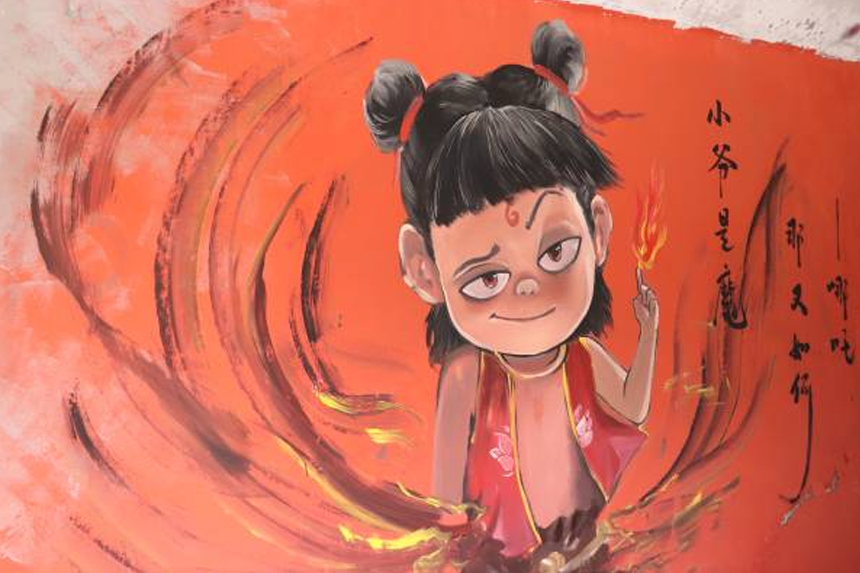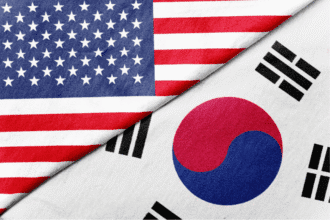Ne Zha 2, the Chinese animated picture recently declared the top grossing animated movie worldwide, is being praised in chorus. With a startling box office income of 12.3 billion yuan ($1.7 billion; £1.4 billion), the film—which chronicles a legendary youngster battling demons—has generated a great national pride wave across China. Unprecedented success of Ne Zha 2 has established a new milestone in the film business, therefore securing its position in movie history.
Debuting in China on January 29, Ne Zha 2 was among numerous well-publicized films meant to profit from the yearly Lunar New Year boom in movie attendance. It exceeded expectations right away and in less than two weeks reached the $1 billion mark. Given China’s faltering economy, the movie’s performance is especially impressive, supporting the idea that domestic films may now challenge Hollywood at the box office. Audiences have found great resonance in the film’s combination of complex narrative, explosive action scenes, and amazing animation.
The movie builds on the surprise smash in 2019, Ne Zha, which was based on the popularity of its predecessor. The directors have captivated viewers once more by improving the animation quality and enlarging the mythological cosmos. Along with deepening the character arcs, this sequel brings more complex battle scenes, therefore improving the whole cinematic experience.
Why is the Ne Zha 2 emblem of national pride?
The great popularity of the movie has caused many in China to celebrate it as a turning point for the home film business. China’s top-grossing films historically have usually been patriotic action films, such The Battle of Lake Changjin (2021), a propaganda work on the Korean War. Now Ne Zha 2 is reigning and proving that Chinese animation can have comparable successes.
Unlike Hollywood movies, which make money from a varied worldwide audience, Ne Zha 2 has made nearly 99% of its box office money from just Chinese moviegoers. The movie is become a litmus test for patriotism, not only entertainment value. While some have complained for not seeing the movie, others have claimed buying several tickets to help it. The great emotional bond to the movie has made it a symbol of artistic success and cultural pride.
“A friend told me I was not patriotic just because I did not watch Ne Zha 2,” a Douyin, China’s version of TikHub user said. Such responses draw attention to the growing nationalism connected to home movies, a trend that has been progressively increasing in past years.
How Has Ne Zha stoked a Hollywood rivalry?
Unprecedented popularity of the movie has sparked a competitive attitude among viewers who now view Ne Zha 2 as a challenge to Hollywood supremacy. One movie especially has gotten caught in the crossfire: Captain America: Brave New World, the fourth superhero feature.
Comments reflecting desires for the Marvel movie to fail in China have inundated social media. “I don’t care if Ne Zha 2 can survive overseas, but Captain America 4 must die in China,” a generally accepted phrase says.
Certain Chinese news sources have delighted in drawing attention to Captain America 4’s subpar performance there. Of the $92 million it has made abroad, just $10.6 million comes from Chinese viewers—a notable decline in a market once among Hollywood’s most profitable.
“It’s not Captain America that’s dying, but America that’s dying,” the title of an essay examining the film’s lack resonance with Chinese spectators reads. The author contends, “in reality, the US does not have superheroes and is not a peace-loving, peace-defining beacon for mankind.”
To give Ne Zha 2, a movie in Sichuan province first priority, a cinema apparently postponed showing Captain America 4. Many nationalistic viewers welcomed the action, which helped to widen the gulf between Hollywood and China’s developing local cinema sector.
Why Is Reaction Against Critics of Ne Zha 2 Not Positive?
Ne Zha 2 has not been without controversy even if it has become somewhat popular. Some viewers have noted suspected anti-feminist undertones, odd humor, and story holes. Devotees, who reject the poor reviews as either part of a planned campaign against the movie or as attention-seeking, have responded fiercely against such comments, though.
“People like that are either clout-chasing, or they are being paid,” said a remark on China’s Instagram-like website, Xiaohongshu.
A person who left comments about Ne Zha 2 online related their experience, stating that the film’s great popularity has heightened defensiveness over it. Any criticism of the movie is interpreted as an attack on national pride since it now serves as a surrogate for the capacity of the Chinese film sector to keep exacting standards with Hollywood.
Another Xiaohongshu user cautioned, “everyone beware, there’s currently a wave of haters swarming Ne Zha 2 with criticism online.” They said that the hostility was “premeditated” and derived from jealous people working in either foreign or domestic film sectors.
“People are voting with feet based on such a fantastic film. Hence, they are resorting to slander and terror. How horrible!” they exclaimed.
Why is the success of Ne Zha 2 causing issues?
While many applaud the movie’s success, some have voiced worries about the political and cultural weight it has adopted. Growing nationalism around the film has created an atmosphere whereby even helpful critique is greeted with hatred.
“Ne Zha 2 is becoming a cultural phenomenon, but I don’t think this is totally a good thing,” said a Xiaohongshu user.
The user noted that an overly politicized argument between supporters and critics is drowning out important discussions. “Criticizing the narrative defects is associated with being unpatriotic; unconditionally denouncing other films released in the same period; substituting deep conversation with a conflict between fans and haters… This is most obviously not a suitable cultural setting.”
Notwithstanding these issues, Ne Zha 2’s popularity is bringing Chinese mythology’s figures to a worldwide audience and has drawn compliments on its screenplay, visual effects, and animation quality. Still, as the movie dominates conversations, it’s unclear if it can keep its momentum or if its societal relevance will eventually overwhelm its artistic value.
Ne Zha 2 is demonstrating that the business is able to create world-class pictures capable of subverting Hollywood’s hegemony as Chinese film is becoming more and more influential worldwide. Whether this tendency will last will rely on how the business responds to changing narrative approaches and global standards.








